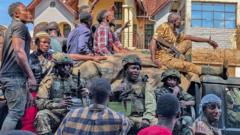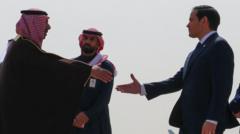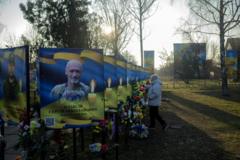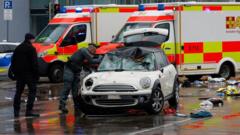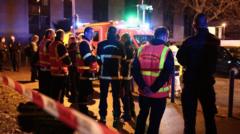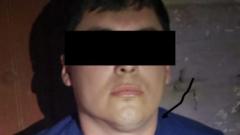In Ecuador, a nation grappling with alarming crime rates, the upcoming presidential election is heavily influenced by widespread gang violence. Incumbent President Daniel Noboa faces significant challenges as voters, like Jorge, a resident of Guayaquil whose father was murdered by a gang, express their deep fears over crime and safety. Official statistics reveal that murders occur every two hours, underscoring the urgent calls for government action and reform.
Ecuador's Presidential Election: Fear and Violence Shape the Vote
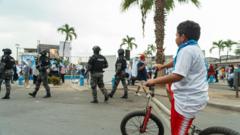
Ecuador's Presidential Election: Fear and Violence Shape the Vote
As Ecuador heads to the polls amidst escalating gang violence, the struggle for security looms large in voters' minds.
The violence has been exacerbated by Ecuador's strategic position in the cocaine trade, leading to a fierce battle between gangs for control. To combat the rising threats, Noboa's administration has intensified police crackdowns and initiated a militarization campaign. Reactions are mixed: while some citizens applaud the hardline approach, others voice concerns over potential human rights infractions. High-profile incidents, such as the killings of four teenagers by military personnel, have ignited public outrage and could sway votes toward opposition leader Luisa González, who proposes a more humane approach to policing.
As voters weigh their options ahead of the election, their choices reflect a broader dilemma: the need for immediate security measures versus the potential long-term impacts on civil liberties. With a fractured nation caught between fear and hope, Ecuadorians brace for a pivotal moment in their history.
The rise in gang violence is rooted in Ecuador's critical role in the international drug trade, with cartels from Colombia and Peru heavily influencing local dynamics. As the election draws near, the question remains whether the current government can effectively restore a sense of security, or if a new leadership is necessary to address systemic issues fueling crime and unrest.
Ecuador's future hangs in the balance as citizens grapple with complex choices that could reshape their nation's future amidst a climate of fear and uncertainty.
As voters weigh their options ahead of the election, their choices reflect a broader dilemma: the need for immediate security measures versus the potential long-term impacts on civil liberties. With a fractured nation caught between fear and hope, Ecuadorians brace for a pivotal moment in their history.
The rise in gang violence is rooted in Ecuador's critical role in the international drug trade, with cartels from Colombia and Peru heavily influencing local dynamics. As the election draws near, the question remains whether the current government can effectively restore a sense of security, or if a new leadership is necessary to address systemic issues fueling crime and unrest.
Ecuador's future hangs in the balance as citizens grapple with complex choices that could reshape their nation's future amidst a climate of fear and uncertainty.



